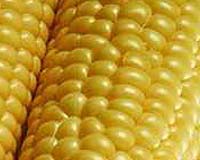 |
Kingston, Ontario (UPI) Jul 16, 2009 Researchers at Canada's Queen's University say they have discovered that, in the plant world, big is not necessarily better. "Until now most of the thinking has suggested that to be a good competitor in the forest, you have to be a big plant," Professor Lonnie Aarssen, who led the study, said. "But our research shows it's virtually the other way around." The researchers focused on the largest individual plants, or "host plants' of 16 woody species growing in the Okanagan Valley region of British Columbia. The team calculated the number and variety of plants neighboring each large host tree and then randomly selected plots without host trees, also calculating the plant species in those areas. The research showed the massive trees have no effect on the number of species with which they coexist. Aarssen said larger species generate physical space niches under their canopies where smaller species thrive. Smaller plants are also much more effective than large trees at utilizing available resources, producing seeds at a much younger age and higher rate than their bigger counterparts. "A growing body of literature is calling for re-evaluation of traditional views on the role of plant size in affecting competitive ability, community assembly and species coexistence," Aarssen added. The study appeared recently in the Journal of Plant Ecology. Share This Article With Planet Earth
Related Links Farming Today - Suppliers and Technology
 Weed Killers Improve Nutritional Value Of Key Food Crop
Weed Killers Improve Nutritional Value Of Key Food CropWashington DC (SPX) Jul 15, 2009 Scientists are reporting for the first time that the use of weed killers in farmers' fields boosts the nutritional value of an important food a crop. Application of two common herbicides to several varieties of sweet corn significantly increased the amount of key nutrients termed carotenoids in the corn kernels, according to a study scheduled for publication in the July 22 issue ... read more |
|
| The content herein, unless otherwise known to be public domain, are Copyright 1995-2009 - SpaceDaily. AFP and UPI Wire Stories are copyright Agence France-Presse and United Press International. ESA Portal Reports are copyright European Space Agency. All NASA sourced material is public domain. Additional copyrights may apply in whole or part to other bona fide parties. Advertising does not imply endorsement,agreement or approval of any opinions, statements or information provided by SpaceDaily on any Web page published or hosted by SpaceDaily. Privacy Statement |